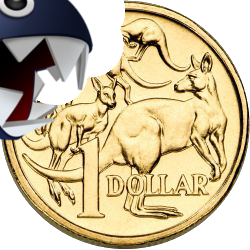Payroll change taking serious toll
 A new report shows Western Australia has the highest payroll tax costs in the country due to recent changes to the exemption threshold.
A new report shows Western Australia has the highest payroll tax costs in the country due to recent changes to the exemption threshold.
A report from the Bankwest Curtin Economics Centre says costs including wages, labour, energy and capital costs were higher in the West too.
Professor Alan Duncan – the Director of the Curtin University-based independent research centre – says the pressure payroll tax places on WA businesses would only continue to increase.
Payroll tax is up as a proportion of total state tax revenue from 26.1 per cent in 2005 to 40.5 per cent this financial year.
Professor Duncan says the report also compared state tax liabilities of similar-sized companies in WA and other states, and identified two key problems with the state's payroll tax system.
The first was that the threshold below which companies did not have to pay payroll tax had increased only once in WA over the last 10 years, moving from $750,000 to $800,000.
Professor Duncan says it means the exemption threshold was not in line with inflation.
“Now, what that effectively represents is bracket creep in the same way we're used to talking about bracket creep in the personal tax system,” he told ABC reporters
“In real terms, the threshold has effectively dropped for WA, which brings more small businesses into the payroll tax system.”
The report found that in order to avoid this form of bracket creep, the threshold should have been increased from the current $800,000 level to $1.1 million.
The second issue was a further planned reduction of the payroll tax exemption threshold, which comes from December's mid-year budget review.
At the moment, companies are exempt from the tax for their first $800,000 worth of payroll.
But from July 1, the exemption threshold has been cancelled for companies whose total payroll is over $7.5 million.
This means that they have been liable for payroll tax at all.
It has effectively increased payroll taxes by up to $44,000 per year for the largest companies.
The change hit WA businesses in particular, where the report found companies with payrolls between $1.75 million and $7.5 million now paid the highest payroll taxes of any state or territory, when compared with similar-sized companies.
Those with payrolls up to $9.4 million had the equal highest payroll tax costs of $550,000, matching the NT.
“This is a function of these most recent changes introduced for just the 2015-16 period,” Professor Duncan said.
He says that before the switch, WA companies rated lower.
“On the 30th of June, 2015, WA ranked, depending on the size of the company, at either third or fourth,” Professor Duncan said.
“For the same company with the same payroll across states and territories, if you compared their liabilities across states, you would find WA ranked third or fourth upon the scale.
“And it's only after the first of July 2015 reforms that WA has been promoted on a like-for-like basis to the state that has the most expensive payroll.”
WA Treasurer Mike Nahan told reporters that the introduction of the diminishing exemption threshold “was a difficult but necessary decision of the State Government to ensure that the state's finances remain sustainable, while at the same time delivering the high quality services and infrastructure required by the community”.







 Print
Print